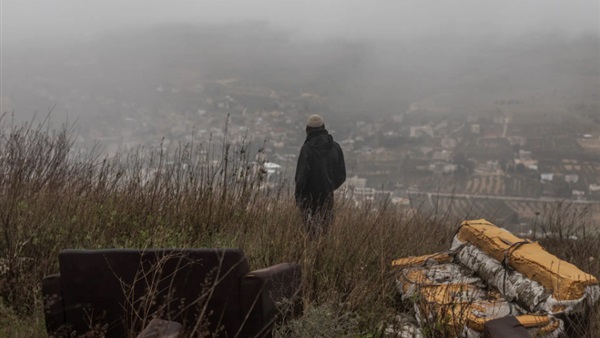Escalating Tensions in the West Bank: Settlers See Opportunity, Palestinians Fear the Worst

The Israeli-occupied West Bank is facing rising tensions,
with Israeli settlers taking advantage of the recent change in government and
increasing their efforts to expand their settlements, while Palestinians are
growing increasingly anxious about the consequences.
The remains of the illegal settlement outpost, Or Haim, can
be found on a hilltop in the north of the West Bank. Despite being torn down by
the Israeli Army, settlers are determined to rebuild and expand their presence,
as the recent formation of the most right-wing government in Israeli history,
which includes key ministers who are also leaders of the settler movement, has
given them a new sense of opportunity.
19-year-old settler activist Naveh Schindler, who is leading
the effort to rebuild Or Haim, is confident that the government will eventually
support the expansion of settlements in the West Bank. However, such expansion
is illegal under international law and is seen as a threat to the possibility
of a future Palestinian state. The growth of settlements and the accompanying
increase in settler attacks on Palestinians is causing great concern among
Palestinians, who are watching with fear as the situation escalates.
The recent wave of settler violence against Palestinians and
their property has been documented by the United Nations, with at least 22
incidents recorded from January 26th to January 30th alone. The actual number,
according to Palestinian officials, is estimated to be seven times higher. The
United Nations has also reported more than 70 settler attacks occurring
throughout January, a rate that, if sustained throughout the year, would be the
highest in at least half a decade.
In addition to the settler violence, the Israeli Army
reported at least 59 Palestinian attacks in the West Bank in January, causing
several injuries but no fatalities. However, at least 35 Palestinians were
killed during the same period, some during the attacks, with at least two
killed by civilian settlers in what Israeli officials described as
self-defense, but which Palestinians have said is unclear.
Young settler activists, who believe that the land in the
West Bank was promised to them by God, have been energized by the presence of
their allies in the new government, while new groups of young Palestinian fighters
have also emerged in response to the entrenchment of Israel’s occupation and
the perceived corruption of their own leaders. The recent surge in violence
highlights the growing tension in the West Bank, with both sides becoming more
entrenched in their beliefs and actions.
ne example of the increasing violence was a recent Israeli
Army raid in the northern West Bank that resulted in the death of 10
Palestinians, followed by a Palestinian attacker killing seven civilians
outside a synagogue in Jerusalem, the deadliest incidents of their kind in
years. However, less reported was the subsequent wave of settler attacks
against Palestinians, in which settlers vandalized Palestinian shops, homes,
and cars.
In the village of Jeensafoot, in the northwest of the West
Bank, tires of the family car and seven other cars in the neighborhood were
slashed, which residents attributed to settlers. For years, settlers from a
nearby settlement have entered the village a few times a year to carry out
similar acts of vandalism, but this was the first time it had occurred in this
particular neighborhood.
The escalating violence and the expansion of settlements are
leading to growing fears that the situation in the West Bank could soon reach a
breaking point. Palestinians, such as 57-year-old Awad Abu Samra, believe that
the new government will only make the situation worse, and that settlers’
belief that they are the only ones with a right to the land will lead to
further conflict. The situation in the West Bank remains uncertain, but one
thing





